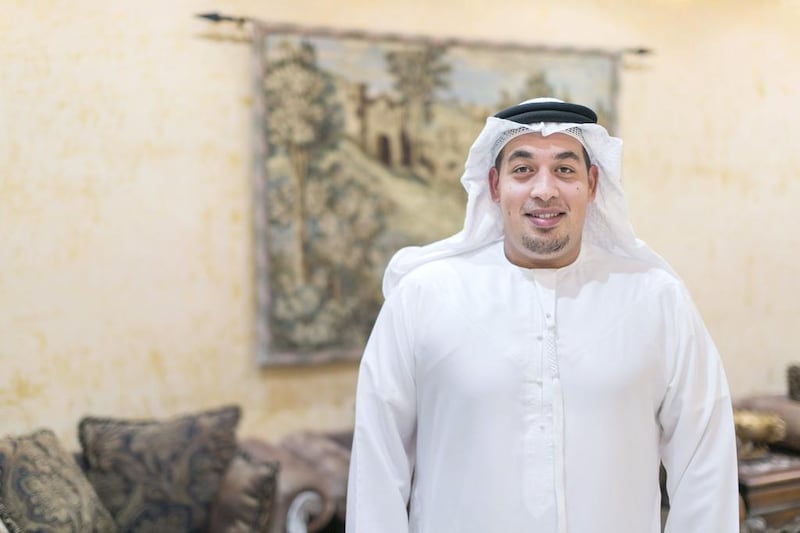UMM AL QUWAIN // The stigma that comes with dyslexia must change, according to one dyslexic who defied the condition and shone as a student.
Sheikh Hamad bin Abdulaziz Al Mualla said the right support and educational tools helped him despite accusations of laziness while at school in the UAE.
Sheikh Hamad went to the United Kingdom for education when he was 9 years old. He was enrolled in Mark College Somerset, where staff were familiar with his condition.
“I started school in the UAE and I was not understanding most of the learning in classes. The information just didn’t make any sense or stay in my mind,” said the 28-year-old, who now runs his own business.
“Teachers told my parents that I was lazy and not doing well with my homework because the teachers themselves didn’t understand what was wrong with me. I was not understanding lessons because I was not getting the right support, which made me angry and frustrated – and then I was expelled.”
After specialists in the UK diagnosed Sheikh Hamad with dyslexia, a lifelong learning problem that affects reading, writing and spelling but not intelligence, his family decided he would be educated there.
He spent 19 years in Britain and with support earned a bachelor’s degree in business management and a master’s in international business management.
“They taught me how to read, write, break up words and make fewer spelling mistakes. I had 25 per cent more time in exams until I sat my master’s. I didn’t get [help] here at all.
One drawback to living in the UK for so long is that he is unable to read and write in Arabic.
“I wish that I studied here and I wish no one goes through what I went through and lose their culture and mother language because they have to study abroad,” Sheikh Hamad said.
“I would love to see the system and support that I got in the UK here in my country.”
Today, still, people in the UAE think dyslexia is shameful, he said. “After 19 years abroad, I came back to a society that is the same as when I left. Yes, we have dyslexia centres now but dyslexia is a bigger problem than just having centres for people who can pay. They are expensive,” he said.
Sheikh Hamad wants to champion the UAE’s dyslexics, raise awareness of the condition and defeat the stigma.
“My solution is to spread awareness through campaigns and tell people dyslexia’s definition, its symptoms, what dyslexics need and what they suffer from on a daily basis,” he said.
“We can have a better system than the UK but, definitely, that can only happen with the full support of the government.”
Rudolf Stockling, clinical director at Lexicon Reading Centre, which helps dyslexic children in Dubai, said there were about 24,000 to 36,000 dyslexics in the emirate and not enough understanding of the condition.
“While there are still parents, and even schools, that believe that dyslexics should pull up their socks, this attitude is by far less common than it used to be.”roueiti@thenational.ae






